ORIGIN &
PRODUCTION
The origin of our Matcha.
Matcha from aiya – THE TEA comes from Kagoshima prefecture and is the pride and joy of our tea farmers who reside there. Kagoshima lies on the southern island of Kyûshû, which is famous for its lush vegetation and untouched nature. The warm, moist climate provides the best conditions for the growth phase of the tea, and this shows in the taste. The volcanic island boasts nutrient-rich soils, with the ashes of no fewer than eleven active volcanoes continuing to provide the valuable minerals that help these precious plants to grow. These optimum conditions are responsible for the successful cultivation of tea in Kagoshima for about 700 years. The long history and ongoing optimization processes have made Kagoshima the second-biggest tea prefecture in Japan, offering optimum conditions for ecological cultivation. Thus AIYA organic matcha has the very best prerequisites to become a top-quality product.
THE WAY OF MATCHA
The Emergence of Matcha
Only a small, elite group of Japanese tea farmers can produce matcha tea. Tencha, the tea from which matcha is produced, grows only in specific shaded tea plantations. Two to four weeks before the harvest, the Tencha plantations are covered with dark nets. This special shading technique reduces sunlight by 90 percent. Virtually in the dark, the tea plant compensates for the loss of the sun’s rays with particularly intense production of chlorophyll, the leaf builds up more amino acids and later develops a delicate, sweet taste.
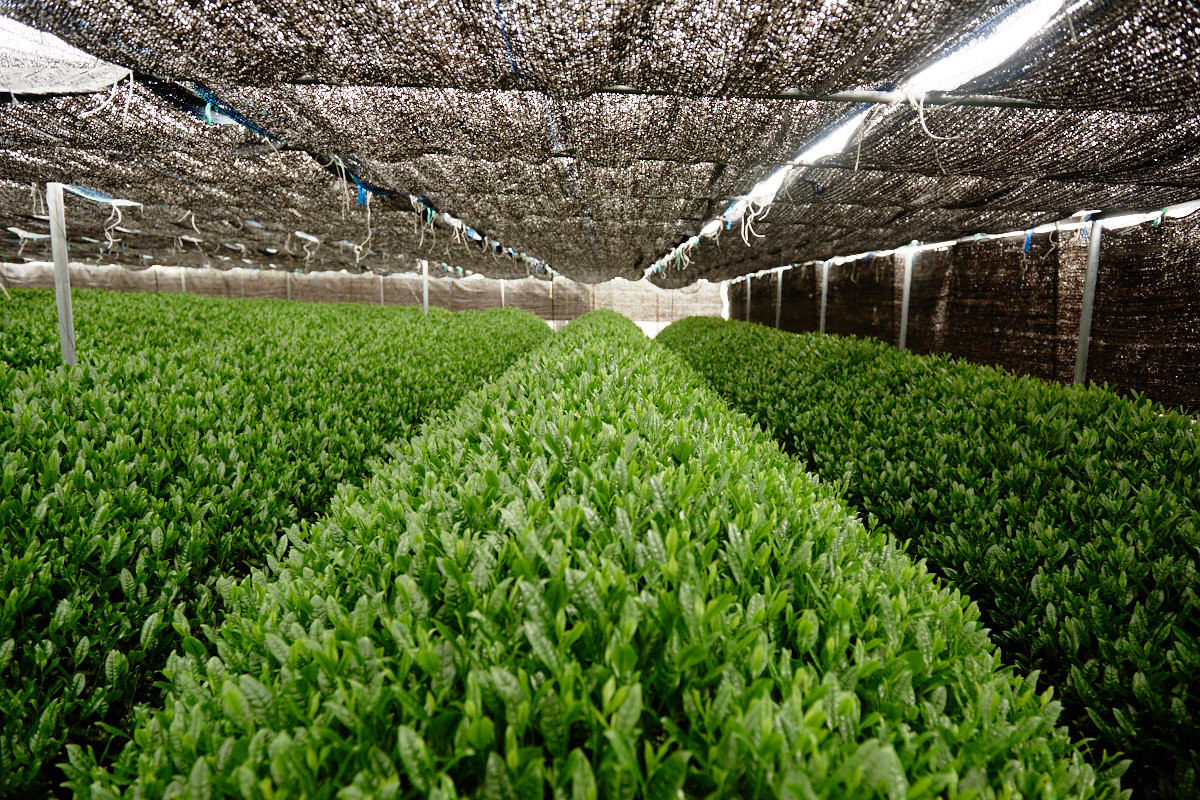
Tencha Harvest
April marks the beginning of the harvest of fresh, young leaves. These are transported to small-scale tea factories as quickly as possible for further processing –the starting point for the tea leaves’ long journey towards becoming a matcha product. First we steam the leaves, as hot water vapour stops the fermentation and keeps the tea leaf fresh. This production method is the best way of preserving the substances contained within the leaf. The leaves are then channelled into an oven and dried at up to 180°C. The weight of the dried leaves is just one fifth of that of the fresh leaves. At this stage, the tea is known as “aracha”. “Aracha” means “raw tea”.
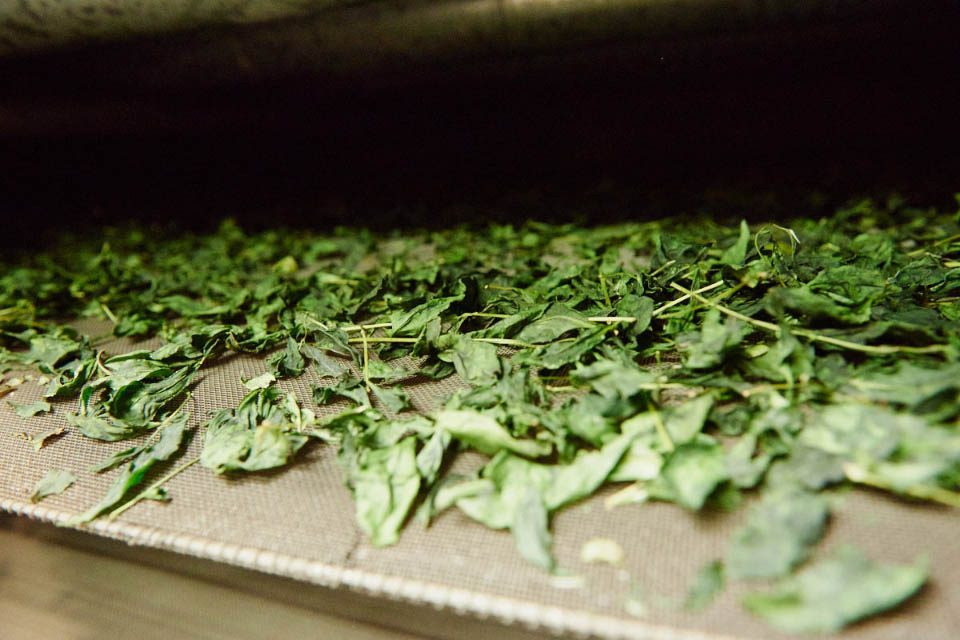
Selection
The aracha is transported on to the refining factory. The leaves supplied vary in their quality, so all the tea leaves are sorted into different quality categories. Our tea tasters separate the leaves according to quality grades and assess colour, texture and taste. Following this, the various batches are mixed together to create our Aiya qualities.
The leaves are channelled through various machines in which their stalks and veins are removed until just the pure, green “leaf flesh” remains. Finally the tea leaves are cut into a uniform shape.
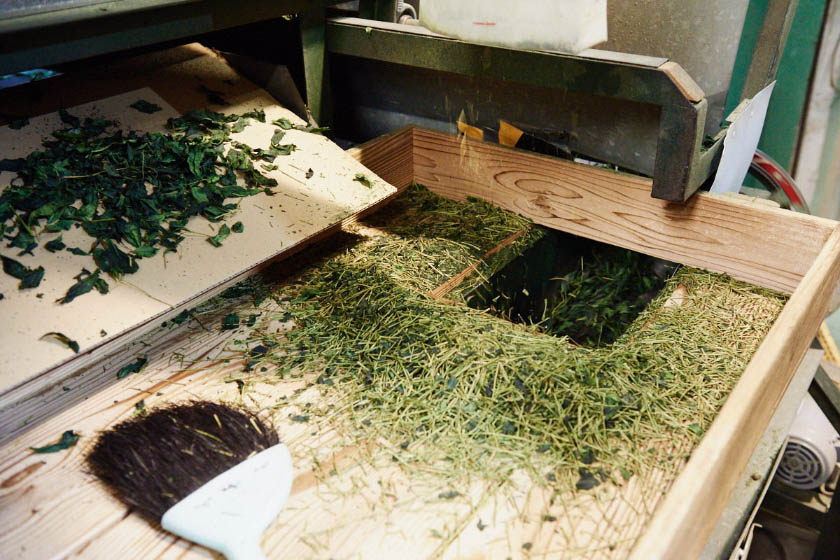
Grinding Matcha
The last stage of production takes place in the factory, in which tencha tea is ground into matcha using handmade granite stone grinders. One of these grinders takes an hour to grind just 40g of tea, which corresponds to about one tin of matcha. Even now, in the twenty-first century, the granite stone grinder is an essential tool for grinding the extremely delicate tencha leaves into matcha. Only this way the colour, taste and aroma can be preserved during the grinding process.
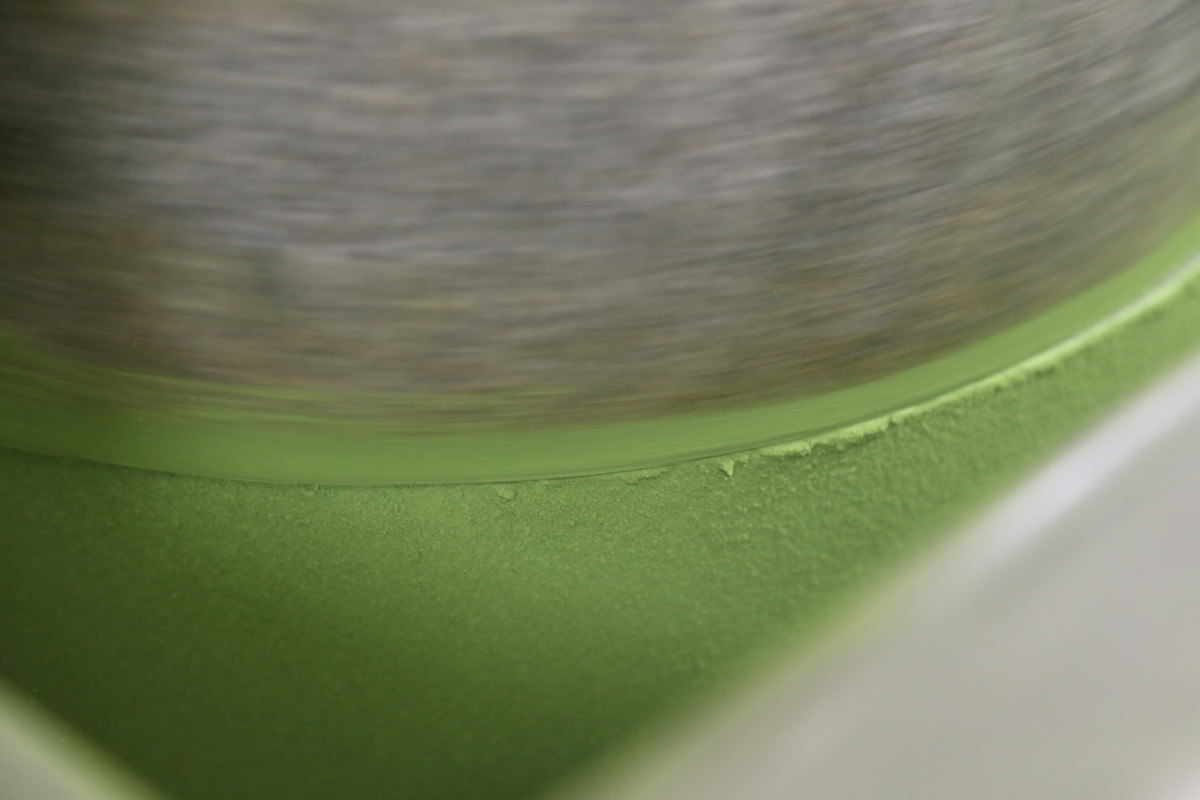
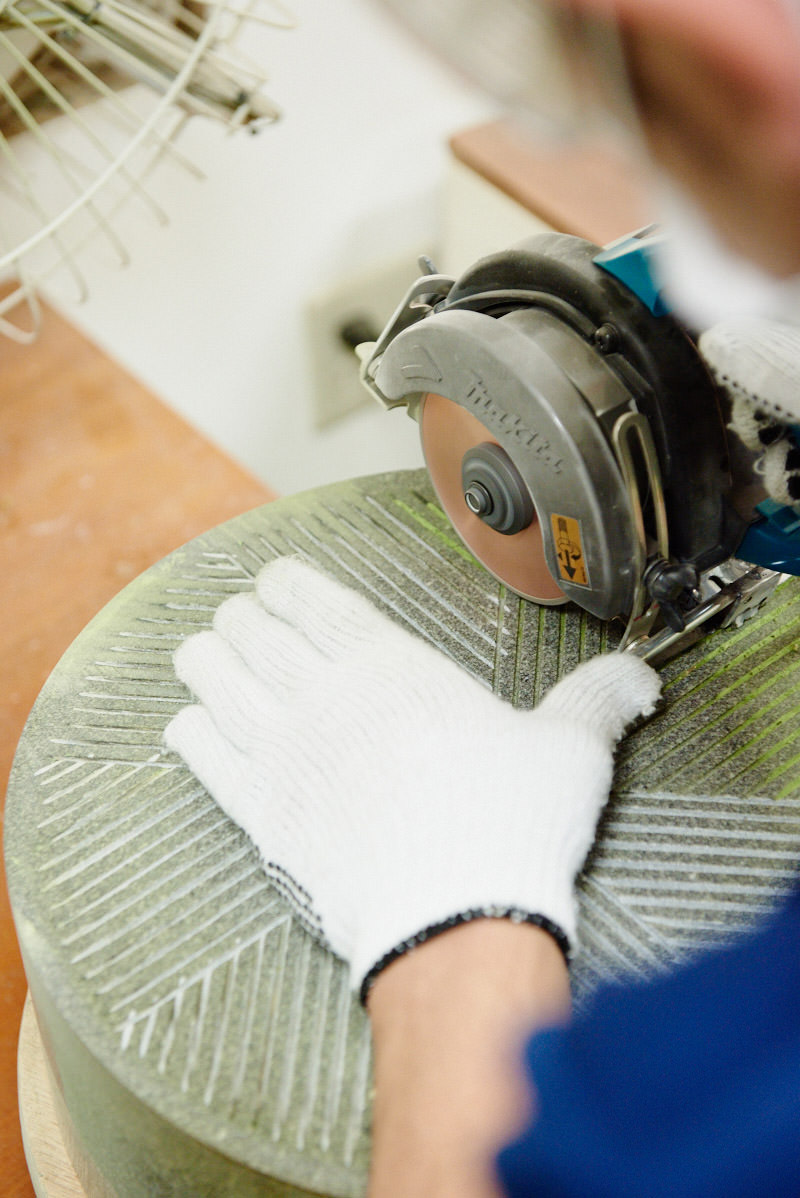
The Stone Grinder
The grinding space is hollowed out between the grinder’s two granite parts. There is also a series of indentations on the surface of the grinding faces. When the grinder turns, the tea leaves are pushed outwards by these grooves. When the leaves eventually reach the edge, they have been transformed into an extremely fine powder. At the centre of the stone grinder is the oak rod, or “shinbou”, which holds the two halves of the grinder together.

The Masters of the Stone Grinders
The special granite stone grinders have been manufactured by trained stonemasons for centuries. Since the indentations that funnel the ground tea outwards are just a few millimetres deep, they must be chiselled very carefully. The hollow of the stone grinder gets deeper towards the middle – so slightly that it is barely visible to the naked eye. Many years of experience, the right feeling for the stone and a love of detail are the most important prerequisites for the success of our stonemasons.
The process ends with the enjoyment of our exclusive matcha. Order AIYA organic matcha and matcha accessories here in our online shop.

